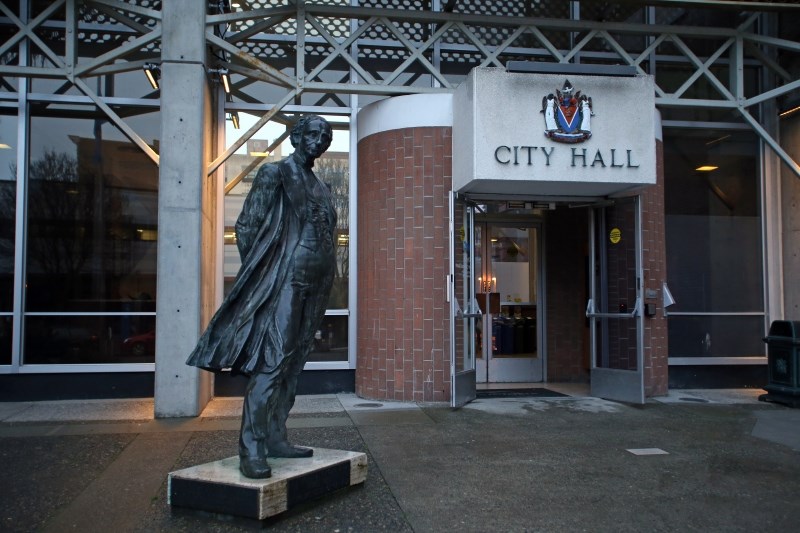Rental vacancy rates near zero, along with a mounting lobby from strata councils and the hospitality industry, is bringing increased pressure on Victoria city council to limit online platforms such as Airbnb.
Hotel managers and tourism representatives have spoken to council, saying that they not only make for an unlevel playing field and cut into their revenues, but that the loss of condos and basement suites to the short-term rental market means many of their employees can’t find a place to live.
These complaints are coming at the same time the market is growing.
Airbnb director of public policy Canada Alex Dagg said there are 1,700 active hosts in Victoria, which saw a combined 101,000 inbound guest arrivals in the past year. The typical host earns about $4,200 a year. About 75 per cent of listings are for entire homes; 24 per cent are for private rooms and one per cent a shared space. The average length of stay per guest is three nights.
Kimberley Hughes, general manager Delta Victoria Ocean Point Resort, cited the case of a recently hired assistant manager who after relocating from Edmonton could not find a place to rent in the city and signed a lease in Langford.
“She’s disappointed and so am I. But why should a landlord rent to a young and up and coming hospitality professional year round when they can earn the same rent in three short months?” Hughes said.
Strata councils complain that absentee owners renting to vacationers have turned condominiums into de facto hotels. They say it comes with all the problems of security with strangers in the building, such as noise and damage, without extra revenue to cover the costs.
But council has also heard from millennials making the case that using a basement suite for short-term rental is one of the few ways they have to get a toe-hold in the overheated real estate market. Condo owners have said they bought specifically in the downtown area because the transient zoning allowed short-term vacation rentals. Real-estate agents see that zoning as a selling point for investors and are, generally, opposed to changes.
Nancy Paine’s business Space Host manages short term rentals for investors as well as for snowbird seniors and young families.
She said none of these clients are wannabe hoteliers. “They’ve simply leveraged their under-utilized properties that otherwise sat vacant,” she has told council.
Paine said the loss of local hotel rooms and tourists looking for a different experience have contributed to the growing popularity of platforms like Airbnb.
Regulations being considered by city staff could mean condo owners who rent units on a short-term basis may require a business licenses. The city also wants to work with the B.C. Assessment authority to have the units reclassified as businesses, which means their tax rate could triple.
That could mean changes to the downtown zoning to ensure condos are used for housing, removing transient zoning as a permitted use.
Many concerns about short term vacation rentals are overblown, said David Langlois, who said he has operated a STVR in a condo for 10 years. He said residents benefit from meeting out-of-towners and there’s little threat that the couple visiting from Saskatchewan is going to break into your storage locker.
“If you say you want to know who’s in your building at all times, I ask you simply to name the person who lives in the unit three floors down and two units over from you. … I’m absolutely certain you cannot,” he said.
Langlois notes his rental is licensed, correctly zoned and not restricted by the strata bylaws. He pays taxes including GST, PST and MRDT.
“If you want to tax my property as commercial, that’s fine. However, you now have to classify every rental as commercial because it’s the same economic activity. While you’re at it, reclassify the home of every telecommuter, home-based business, home artist studio, home-based coder, therapist, consultant and mail-order e-Bay guy and then I’ll get on board with you,” Langlois said.
Coun. Ben Isitt said removing the transient entitlement from downtown zoning is a step in the right direction. He disagreed with the suggestion that operating a vacation rental is no different from renting for housing or a home business.
Renting a unit for housing is considered “a social good” and is therefore taxed at a residential rate with no business licence required, Isitt said. The social good is not as obvious with a vacation rental, he said.
“I realize this would have a disruptive effect on people who have sort of built their personal finances around this model, but the problem is it’s creating economic insecurity for many people in our community.”
Isitt noted the existing units would retain legal non-conforming status after a zoning change, but over time as condos sold they would be returned to their intended purpose of housing.
Coun. Chris Coleman, said a zoning change might stop some future STVRs in future downtown condos, but it won’t turn back the clock. “We shouldn’t delude ourselves into thinking that stops the [existing] ones, because there will be a whole bunch of grandfathered units and legal non-conforming who are allowed to carry on that work.”
Coleman suspects some middle ground will be found where STVRs will be permitted in suites where the landlord is a resident.
Whatever decision is made by council, three of the nine council members won’t be involved.
Coun. Margaret Lucas who manages a downtown hotel has declared a conflict, as has Coun. Pam Madoff ,who has a bed and breakfast. Mayor Lisa Helps does not participate in the debates because says she wants to avoid the “perception of conflict.” While she does not operate or profit from an Airbnb, one is in operation in the duplex in which she says she’s a renter.



